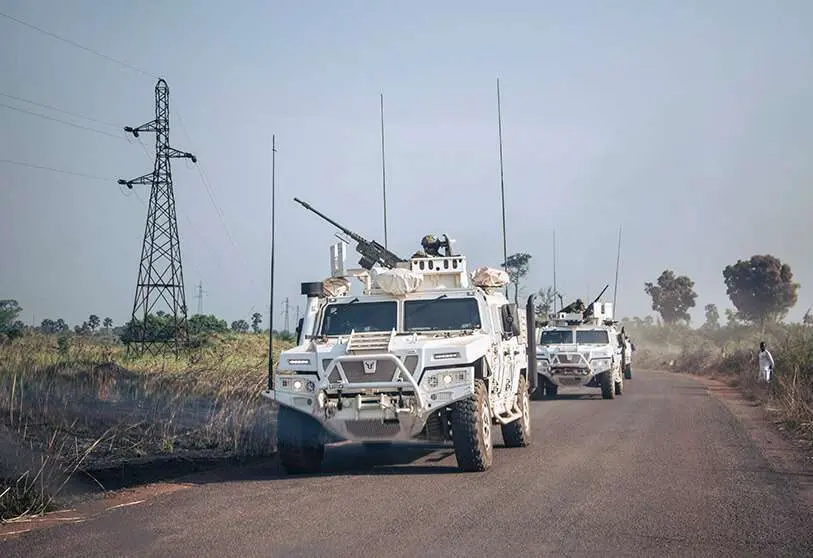MINUSCA calls for more troops for CAR

Mankeur Ndiaye, head of the United Nations Integrated Stabilisation Mission in the Central African Republic, MINUSCA, has asked the United Nations Security Council to send more blue helmets to confront the rebel uprising that is trying to take control of the country.
Ndiaye said that if this decision is not taken soon, "MINUSCA could find it difficult to carry out its most essential tasks". At present, the number of military troops that the mission maintains in the country is just over 11,000, to which must be added more than a thousand police personnel.

The Senegalese has urged the Council to "substantially increase" the number of military personnel deployed in order to guarantee the security and integrity of Central African institutions throughout the country, something that is not currently possible to do in the face of attacks by the Coalition of Patriots for Change (CPC).
Ndiaye has also accused former president François Bozizé of having convinced several of the fourteen armed groups that signed the peace accords in 2019 to return to violence. This has allowed the CPC to carry out attacks on localities in different parts of the country, including the capital itself.

One aspect pointed out by Mankeur Ndiaye is the need to extend cooperation between the UN missions in different countries, which, in the case of the Central African Republic, would allow the rapid assistance of troops from the blue helmets present in neighbouring South Sudan.
The head of MINUSCA also warned that the real effort to be made must be political, and urged the re-elected President Touadera to bring the armed groups back to the dialogue table. Likewise, the relationship with the opposition must be constructive, to ensure that all possible bridges are built between the different political actors who play a determining role in Central Africa's future.

One of the first measures adopted by Faustin Toaudera was to decree a state of emergency throughout the country for the next fortnight due to the increase in violence. The Central African president, like Ndiaye, noted the worrying evolution of events since the end of last month.
The situation is also becoming alarming in Bangui, as the CPC, in addition to having attacked the capital on several occasions with little result, is trying to block the entry of supplies by occupying the roads leading to the Central African capital.

Both the Central African government and MINUSCA warn that the country is at risk. The president has justified the decision to decree a state of emergency as a measure to quell the violence, as it allows, among other things, arrests by the Central African Armed Forces.
Since the upsurge in violence, more than 60,000 Central Africans have fled the country because many of these attacks have taken place in border areas such as Bouar or Bangassou, from where the rebels were expelled after two weeks of occupying the town.









